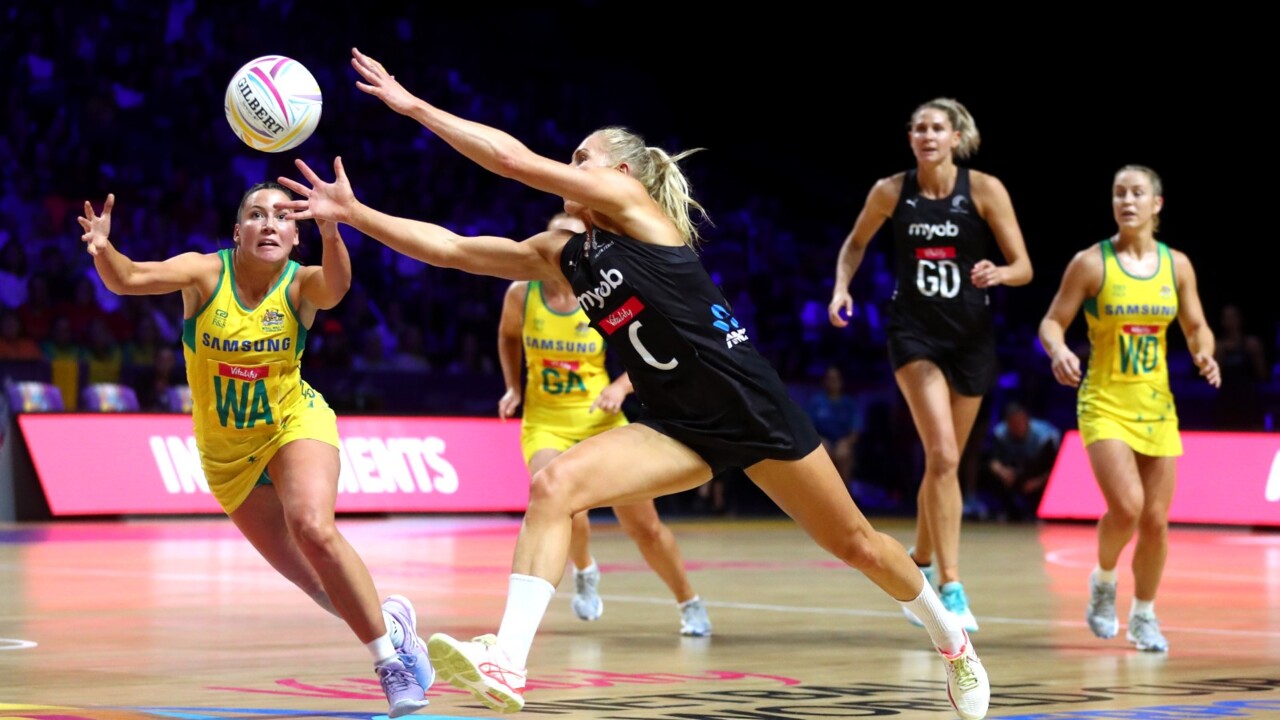Tim Blair: Rich athletes destroying sport with lefty values
Increasingly, the sponsors of cricket and other major sports must exhibit rich lefty values that align with those held by the sport’s players. In many cases, this means fussy millionaires whose wealth allows them to indulge in climate change and social justice causes.

Opinion
Don't miss out on the headlines from Opinion. Followed categories will be added to My News.
It’s always been a tremendous honour to be selected to play for the Australian cricket team. Now, however, it’s evidently an even greater honour to be allowed to sponsor our cricket team.
This opportunity is not available to just any old company. Increasingly, the sponsors of cricket and other major sports must exhibit rich lefty values that align with those held by the sport’s players.
In cricket’s case, this means fussy millionaires whose wealth allows them to indulge in climate change and social justice causes.
Now that players have a greater say on who gives them money, imagine future variations on family conversations that have happened every year in Australia since the very first Test match was played in 1877:
Son: “Mum! Dad! You’ll never believe it! I’ve been selected by the Australian cricket team!”
Mum: “Well, that’s wonderful, son. But you’ve never played cricket.”
Dad: “Your mother’s right, boy. In fact, you’ve never even seen a game of cricket. You’re the fat chief executive of a mental wellness body-positivity racial equality empowerment app store, whatever the hell that is.”
Son: “You don’t understand. I haven’t been picked to play for Australia. Following prolonged player negotiations, my company has been picked to sponsor the team.”
Mum: “Nobody outbid you?”

Son: “Everybody did. But they’re all connected in some way to fossil fuels, big business and capitalism.”
Dad: “Oh, that’s just great. Our boy is the Steven Bradbury of corporate Australia.”
Son: “SHHHH! Don’t say ‘corporate’. It’ll cancel the deal.”
The future of cricket’s finances emerged last week following revelations that Australian captain Pat Cummins had discussed ethical concerns with Cricket Australia’s chief executive Nick Hockley.
Cummins, who lives in a $9.5m Sydney mansion, drives a Range Rover and flies all over the world to play games, can’t abide being sponsored by energy company Alinta.
Nor can several of his teammates, seeing as Alinta’s parent company, Pioneer Sail Holdings, was recently listed as one of Australia’s highest carbon dioxide emitters.
Considering the gigantic carbon footprint of our cricket stars, Alinta’s values appear to align with them perfectly. But the players don’t quite view it that way.
“More so than ever before, you’re seeing players’ personalities and interests and passions shine through and have a bit more of a say than maybe in the past,” Cummins told Melbourne’s The Age newspaper.
“The most obvious, front-of-mind things you can see is who we partner with. So I hope that when we think of who we want to align with, who we want to invite into being part of cricket, I hope climate is a real priority.”
More precisely, climate has become a “real priority”. It wasn’t much of a “front of mind” concern for players and Cricket Australia a few years ago, when the sport struggled to attract sponsors following the sandpaper ball-tampering scandal of 2018.

Back then, as The Age article noted, Alinta was “one of the few willing sponsors”. So CA and the players happily accepted the energy firm’s $40m.
The players, including Cummins, also starred in cheesy ads for Alinta. As The Age coyly observed: “When first asked to appear in advertising for the deal, some Australian players were privately less than enthused, but felt they had little choice but to participate due to the team’s poor standing at the time.”
They had all the choice in the world. The players could very easily have backed out of those ads, but that would have put millions in Alinta sponsorship at risk.
With Sandpapergate now faded, however, Cummins and his cashed-up crew have regained their moral authority. Or, as The Age put it: “The improved image of the team helped Cummins to feel within his rights to discuss the need for greater ethical considerations in the choice of sponsors.”
Translation: When it might have cost them, our cricketers put their climate concerns aside.
In any case, Alinta’s deal – originally signed for four years – will now be extended for only one more season. And captain Cummins, whose gas stove in that impressive Sydney mansion is worth more than players received for entire Test seasons in previous eras, won’t appear in any Alinta ads.

But he will promote a campaign for cricket clubs to install solar power systems donated by Chinese manufacturing giant LONGi.
Some interesting “ethical considerations” are involved here, too. “Why,” asked Nationals senator Matt Canavan, “is the Australian cricket captain promoting a Chinese solar panel company that has been implicated in using forced Uighur labour in Xinjiang?”
Good question. “If Pat Cummins wants to turn cricket into the morality police,” Canavan continued, “I would have thought that the human rights abuses of the Chinese Communist Party might deserve more attention than a power company that helps keep the lights on for his T20 games.”
Netball as well has lately confronted certain “ethical considerations”, leading last week to mining magnate Gina Rinehart’s Hancock Prospecting ditching a $15m sponsorship agreement.
But, when it comes to netball, “sponsorship” is entirely the wrong word. Hancock Prospecting’s deal was more like a donation, with little likelihood of any economic return.
Netball in Australia can now get on with its core business of going broke. And Cricket Australia can commence the search for its woke sugar daddy – or, to use more acceptable modern phrasing, a sucrose-abundant primary parent.



